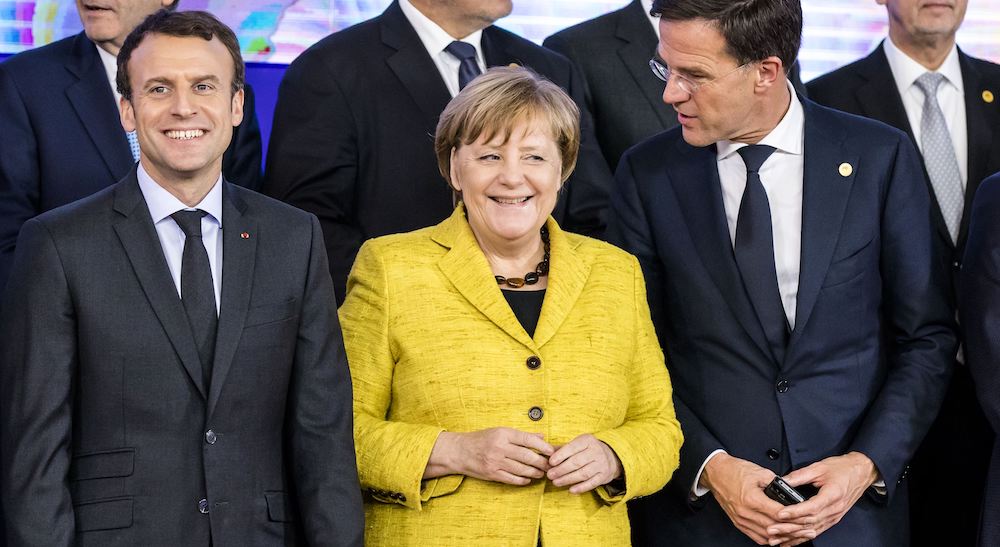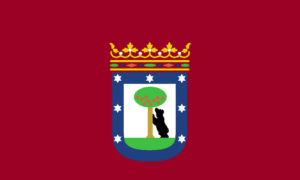A pandemic is a terrific test of which countries are high-functioning societies and which are dysfunctional. Which elected officials are leaders and which are imposters.
We – like all of you – have been completely overwhelmed by the pandemic. We read about it. I edit contributors’ posts about it. But we’re very fortunate to live in a small village in the Netherlands where nothing much changed and not in London or New York where elected officials have failed their people miserably.
In short, we’re very, very fortunate to live in a high-functioning society.
The Netherlands was never “locked down” like France, Italy or Spain. But there’s more to it than that. The Netherlands kept functioning and people followed the rules. The trains ran. The stores were mostly open, there were never any shortages and we never saw empty shelves at the supermarkets. Hospitals were prepared to be overwhelmed with COVID-19 cases, but that day never came.
The defining aspect of a high-functioning society is it keeps functioning … even under cataclysmic conditions.
That brought me to another realization. When we compile our lists of the best cities and countries for expats, we try to quantify intangibles such as quality of life, but we’ve omitted a crucial factor: quality of governance. In the future, we’ll be sure to put a number on that in our calculations. I’m an optimist, and I believe this crisis will all pass far faster than anyone thought at the depths of the pandemic. But I also believe there’s going to be hell to pay for some of Europe’s leaders.
While we can’t look at all 44 countries in Europe, we selected leaders based on the influence of their country and on who stood out for the right reasons as well who stood out for the wrong reasons.
Here’s our report card and, yes, we’re using the Old School American elementary school grading system of A through F.
Kyriakos Mitsotakis – A+
Honestly, we didn’t know that much about Greece’s prime minister. We just know Greece came out of the pandemic with among the lowest death rates – 17 per million of population, about 80-percent lower than Germany – of all the major countries in Europe.
For some perspective, Greece – population 10 million – recorded about 2,900 coronavirus cases as of 28 May and 172 deaths while Belgium –population 11 million people – had more than 57,600 cases and 9,364 deaths.
When we researched Prime Minister Kyriakos Mitsotakis, a graduate of both Harvard and Stanford, we noted that he’d been on the ground constantly and tirelessly during the pandemic. Now the question is, does he have the chutzpah, clout and energy to take on Mark Rutte, Sebastian Kurz and other leaders of the “haves” with surpluses trying to limit EU aid to the have-nots?
There are literally dozens of posts praising Greece’s pandemic performance and Mitsotakis’ role, including this one in the Telegraph.
His reward? Please … he lives in the country the rest of us fantasize about moving to.
Angela Merkel – A
Germany has recorded more than 181,000 coronavirus cases, but the mortality rate – 101 deaths per million in population – remained a fraction of other European countries because the chancellor listened to the experts, planned her work and worked her plan. And, of course, the German people are disciplined.
The New York Times has an in-depth post about Germany’s scientific, data-driven approach.
At the height of the pandemic, Germany’s fatality rate hovered around 1.6 percent, compared to 12 percent in Italy and about 10 percent in Spain and France. The reason was, Germany was prepared, with testing and plenty of intensive care beds. Does Chancellor Angela Merkel, who’s trained as a scientist, deserve credit for all this? Yes, because had Germany gone the way of, say, the United States, she would have gotten all the blame.
Merkel is always ranked high on the lists of the world’s most powerful people whether the list is in Forbes or Vanity Fair. There’s no one like her in the world. Merkel has faced down Islamic extremists and Far Right terrorists with equal aplomb. Donald Trump hates her because she’s disciplined, competent and tactical … basically everything he’s not. Which is why she’s at the top of our list.
Now, she’s using the pandemic to modernize Germany’s economy. Merkel is promoting promising companies and even new tech sectors such as AI and renewable energy while boosting the biggest businesses to be even bigger players on the world stage as the U.S. fades.
Her reward? No way she ever gets to retire.
Mark Rutte – A
This gut-it-out, center-right technocrat is probably the most accessible leader in Europe. Prime Minister Mark Rutte rides around Den Haag on his bike with no bodyguards and teaches a college class each week. Indeed, when we go to our neighbor’s house to listen to the prime minister’s COVID-19 updates, it’s like listening to your favorite professor … clear, erudite and steady.
Our Dutch neighbors say they might not always agree with his politics, but they hold his leadership qualities including judgement in high regard.
Okay, things could have gone better. The Netherlands ended up with 385 deaths per million, just behind Sweden. Which is no coincidence, because like Sweden, the Netherlands never really shut down. Not like Denmark, Greece and other countries. But it will be a while before we know whether – in the long run – this was the right approach.
Whatever the case, Rutte leads by example. Even when his 96-year-old mother was dying, the prime minister didn’t waiver, following the COVID-19 rules and only seeing her in her last hours.
A fiscal conservative, Rutte – like Sebastian Kurz in Austria – is not popular with the leaders of other EU nations such as Spain and Italy, where the economies are in need of yet another bail-out.
His reward? Rutte is an ever-more influential player in EU politics.
Sebastian Kurz A –
Chancellor Sebastian Kurz’s government did a good job and made many tough decisions, said one expat we talked with who is not a Kurz supporter. “That’s why two months later we have a good situation.”
Early in the pandemic, Austria went into high gear with testing, learning from the “Smart Countries Alliance” (Singapore, Israel, South Korea).
Watch this video on Bloomberg.
Bottom line: Austria is making headlines as one of the first countries in Europe to lock down and one of the first to reopen. Closing down was not a popular decision, but Kurz looks pretty smart now. Okay, he actually looks like he’s 16, but his leadership qualities and powers of persuasion are undeniable.
Still, in a country with a high percentage of foreign-born residents (at least 20 percent), Kurz plays the nativist card to please his base, starting every address with, “Liebe Österreicher und Österreicherinnen.”
Kurz is too far right from our middle-of-the-road perspective, but as foreign secretary, he won accolades for his international orientation, according to our expat sources.
For a nationalist (sort of), he thinks globally. And unlike neighboring Hungary, which is a dictatorship, Austria is more aligned now with the libertarian Netherlands, Sweden and Denmark – the Frugal Four – which have crafted their own plans for a post-pandemic financial rescue alternative to the European Union’s 750 billion euro plan.
His reward? Kurz is likely to have even greater leeway to shape Austria in his image for many years to come.














